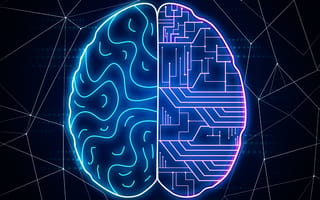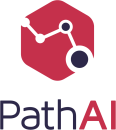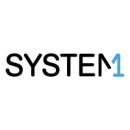Machine learning, in which a computer simulates human thinking by using data models to recognize patterns and make predictions, is being applied in nearly every industry.
Indeed, machine learning examples are numerous, and they can be found in fields ranging from healthcare and banking to marketing and sports. The list of machine learning applications below will give you an idea of how the technology is used on a daily basis.
Machine Learning Applications to Know
- Social media personalization.
- Image recognition.
- Business intelligence optimization.
- TV, movie and video recommendations.
- Healthcare personalization.
Machine Learning and Image Recognition
Scythe Robotics builds all-electric, autonomous mowers. Scythe Robotics uses machine learning to train its mowers so they can detect and avoid obstacles as they navigate off-road environments. The company’s mowers are designed to be less noisy than their counterparts and come with sensors for 360-degree perception.
Face ID authentication by Apple utilizes machine learning to carry out image recognition and unlock mobile devices. Apple’s biometric technology is powered by Vision, a deep learning framework which is able to detect the features of users’ faces and quickly match them to previous device records. The Vision framework can also be used to detect barcodes, text and landmarks through device cameras.
Waymo’s self-driving vehicles use machine learning sensors to crunch surrounding environment data in real time and help guide vehicle responses when faced with various situations, from a red light to a human walking across the crosswalk.
Amazon’s cloud service AWS provides Amazon Rekognition, which uses machine learning to automatically identify objects, people, text, and activities in both images and videos. AWS also offers free machine learning services and products to help developers and data scientists build, train and deploy customized machine learning models.
AMP applies machine learning to power its technology for recycling operations. The company’s AMP ONE solution is able to recognize a variety of material types so that it can enable fully autonomous, accurate sorting. The company says its offerings can be configured to address the unique needs of different recycling facilities.
Machine Learning and Speech Recognition
Duolingo, the language learning app, incorporates machine learning-based speech recognition to gauge a user’s spoken language skills. The closer a user’s pronunciation is to native speaker data stored in Duolingo’s system, the higher the user will be scored during speaking and conversational lessons.
Google Translate can detect and switch between languages seamlessly, thanks to the Google Neural Machine Translation (GNMT) system, which is powered by machine learning and recurrent neural network technology.
Using language data sets, the GNMT system can train models how to input, output and compare words and phrases between languages, making translation faster and more accurate over time. Google is continuing to use this technology to allow feats like text translation from images and under-resourced language translation.
Dscout provides research solutions to organizations ranging from healthcare to retail. Its AI-powered analysis tools help users swiftly process and interpret qualitative data. The tools offer AI-generated summaries, theme identification and expressiveness scoring.
Machine Learning and Product Recommendations
Etsy, whose online marketplace platform for users to buy and sell products, applies machine learning to personalize the shopping experience, providing customized product recommendations and ads based on previous purchases or product searches.
A provider of AI-powered technology for pathology research, PathAI helps healthcare professionals measure the accuracy of diagnoses and the efficacy of complex diseases. Using predictive machine learning, the company’s technology can be used to make medicinal solutions more accurate, reproducible and personalized based on patient history.
Fit Analytics, which helps consumers find the right sized clothes, uses machine learning to make recommendations on the best-fit styles. It also uses the technology to assist brands in gaining insights into their customers from popular styles to average customer measurements.
In a process called collaborative filtering, Netflix uses machine learning to analyze the viewing habits of its millions of customers to make predictions on which media viewers may also enjoy. Recommendations are based on those predictions and determine what shows, movies and videos will display on the homepage and watch-next reel of each user.
Machine Learning and Social Media
Snap, the technology innovator behind the virtual messaging app Snapchat, leverages built-in machine learning models in its Lens Studio offerings. Lens Studio allows users to create Snapchat lenses. The product’s 3.0 version comes with SnapML, a library that trains and scores traditional models and enables users to add their own machine learning models to lenses.
Social media giant Twitter relies on machine learning to prioritize tweets that are the most relevant to every user. Twitter’s machine learning ranks tweets with a relevance score based on what you engage with the most and other metrics. High-ranking tweets based on similar engaged posts are placed at the top of feeds, so users are more likely to see them.
Quora, a social media question and answer website, uses machine learning to determine which answers are pertinent to your personal search queries. The company ranks answers based on results from its machine learning, such as thoroughness, truthfulness and reusability, when seeking to give the best response to a question.
Hinge offers a dating app that believes those looking for love should be able to take it off the app. It uses machine learning and artificial intelligence to optimize its algorithm’s potential matches. Its “Most Compatible” matching feature was launched in 2017 and analyzes data to find potential matches based upon interactions and preferences.
Machine Learning and Finance
TrueAccord, part of TrueML, specializes in digital collections and provides consumers with a self-service portal for resolving their debts. Machine learning fuels TrueAccord’s personalized consumer journeys, continuously optimizing communication and other factors to ensure quality engagement.
Financial institution Capital One uses machine learning to detect, diagnose and remediate anomalous app behavior in real time. It also uses the technology as part of its anti-money laundering and fraud tactics to adapt quickly to changes in criminals’ behaviors.
Upstart develops digital lending solutions meant to improve the loan experience for both borrowers and lenders, with machine learning powering predictions that can enable more efficient and accurate credit decisioning. The company says its AI-powered offerings for lenders support automated approvals, for example, and lead to fewer defaults.
Canoe is a platform for smart alternative investment management. Its cloud-based technology uses machine learning to extract data and offer investment insights to users. The company serves wealth managers, institutional investors, family officers, capital allocators and global asset servicers.
Machine Learning and Business
Klaviyo’s digital marketing platform offers features brands can use to automate their campaigns and deliver personalized messaging to consumers via email, SMS and mobile push. The company’s technology includes predictive analytics solutions that rely on machine learning and data science to provide brands with insights based on customers’ past behaviors.
Agero works with vehicle service providers like tow companies, repair facilities, automakers and insurance providers to connect drivers to support and assistance. It serves clients in the insurance and automotive industries with software and services for pos-warranty benefits programs, electric vehicle support, accident management and roadside assistance.
Veritone makes artificial intelligence solutions for content creators, legal professionals, law enforcement agencies and HR teams. Its aiWARE platform serves as the foundation for its technology offerings and is equipped with machine learning models to enable capabilities ranging from transcription to face recognition.
Monte Carlo makes a data observability platform that helps businesses improve data reliability and prevent potential downtime by quickly identifying issues and offering tools to streamline their resolution. Its solutions include anomaly detection that’s powered by machine learning models, and users can group alerts so they’re not inundated with incident notifications.
System1 uses AI and machine learning to power customer acquisition solutions through its omni-channel and omni-vertical digital marketing platform. To effectively connect brands with high-intent customers, the company’s proprietary algorithms allow its platform to analyze consumer demand and deliver optimized ad content to the consumer at the right time.
Instacart’s technology solutions allow consumers to shop for baked goods, beauty products, fresh produce, seafood and other items through a mobile app and have them delivered to their doorsteps. The company’s technologists develop machine learning algorithms and models for a variety of applications that are meant to enhance the shopping experience. These use cases range from generating autocomplete suggestions for user product searches to calculating delivery routes.
Adtech company Smartly offers an AI-powered platform with features that cover creative development, campaign management and intelligence on campaign performance. The company uses machine learning to enable recommendations for optimizing ads. Since its 2013 founding, Smartly has grown to serve more than 700 brands across its operations in multiple countries.
Across its range of cybersecurity offerings, Duo Security integrates machine learning to bolster advanced threat detection, authentication and fraud prevention capabilities. Through the aggregation and analysis of user authentication patterns and behaviors, Duo swiftly identifies anomalies and empowers clients with proactive threat response measures.
Tech is big at McDonald’s, which has been working to develop applications for new technology in the food and beverage industry. The company continues to push the boundaries of how AI and machine learning can optimize the process of making and serving food, using machine learning to automate order taking and to predict what menu items will sell the best at drive-thru windows.
Adtech company Yieldmo offers the Yieldmo Smart Exchange: a “global omnichannel exchange” for ad content. Different ad buyers have different KPIs, and Yieldmo’s predictive analytics are geared toward curating ad inventory to serve specific performance indicators. The exchange uses machine learning to analyze contextual ad data and pair ad publishers and buyers, with the goal of maximizing monetization and performance according to ad spend.
Striveworks believes that decision-makers often have a disconnect between data and its interpretation. This led it to create its cloud-native platform using operational AI to automate the data analysis process and simplify MLops. The platform allows software engineers, data scientists and other professionals to efficiently prepare datasets, train models and deploy data.
Atlassian’s popular collaboration and productivity software, including Jira and Trello, aim to improve efficiency for organizations worldwide. The global company serves over 300,000 customers and works with more than 80 percent of the Fortune 500. Its machine-learning powered “smarts” technology works to help remote teams reduce repetitive tasks and identify collaborators more quickly.
Samsara builds end-to-end artificial intelligence solutions and machine learning infrastructure for managing physical operations. Its machine learning teams harness real-world data to deliver plug-and-play IoT functionality to support its customers’ fleets of vehicles.
Sojern provides client companies in hospitality and travel with digital marketing strategies aligned across their platforms and channels. Its software platform provides insights and tools to optimize campaign performance and engage targeted audiences.
Liftoff is a mobile marketing company that enables growth for app developers through monetization, retargeting and programmatic user acquisition capabilities. Cortex is its ML platform that leverages neural networks to analyze large datasets and improve decision making. Cortex is designed to help Liftoff’s partners achieve faster, smarter and more scalable growth.
Machine Learning and Healthcare
Strive Health offers technology and services meant to innovate care and improve outcomes for people who have kidney disease. The company’s solutions include the CareMultiplier platform, which relies on machine learning to power its predictive analytics capabilities. Strive Health says the technology gives providers access to insights that support timely care interventions.
AKASA uses machine learning and generative AI to reduce administrative work in the healthcare revenue cycle. With proprietary data and a research focus, the machine learning engineering team focuses on applying ML to build tools that help customers handle related tasks, such as medical coding and claims processing, more efficiently.
Machine Learning and Robotics
Apptronik uses machine learning to power its robotics solutions, enabling its machines to autonomously handle tasks such as trailer unloading, case picking and machine tending. The company’s general purpose humanoid robots are designed to operate in warehouses and manufacturing plants to help businesses solve worker shortages and improve workplace safety and productivity.







































